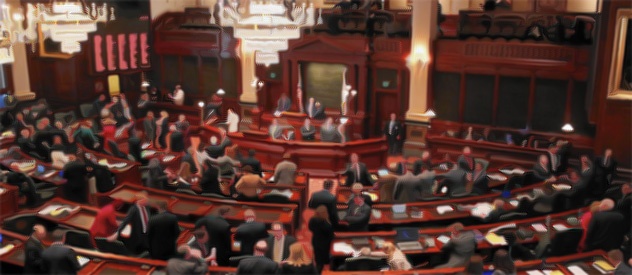
Local governments throughout the State of Illinois are bracing themselves for what could be a costly invoice from the Illinois Department of Revenue (IDOR). Earlier this year, IDOR stated that it had located misallocated revenue linked to the Personal Property Replacement Tax (PPRT) Fund which began two years ago. An overpayment of around $168 million was found to have been given to local governments receiving PPRT disbursements, throughout the State.
It has been stated by IDOR that it will collaborate with the affected taxing districts to help develop a plan to recall any overpayments. A complete list of local governments affected by this mistake can be found on IDOR’s website: tax.illinois.gov. Recently, IDOR have provided further explanation regarding of how of how this error managed to occur.
Under the Illinois Constitution of 1970, the Illinois General Assembly passed the PPRT to help replace local government income lost with the abolishment of personal property taxes on corporations, partnerships and other entities. Because of this, all Illinois corporations, partnerships and trusts, must accord to the PPRT in compliance with the Illinois Revenue Code. This collected revenue is then placed by the IDOR into a separate PPRT fund and distributed to local government in the State.
IDOR state that the way in which the Public Acts 95-707 and 98-478 have been enacted are the primary reason for discovering the funds misallocation. S-Corporations, partnerships and trusts must, in accordance with the Public Act 95-707, makes tax payments for “nonresident owners” (nonresident shareholders, partners and beneficiaries). These are known as “pass-through withholding payments” and are not to be placed into the PPRT Fund, or distributed to local governments.
For these payments to be successful, Form IL-1000 was created by IDOR. This form meant that if the respective nonresident owner’s State income tax liability was satisfied by their pass-through withholding payments, then no tax return was needed. This cause two primary problems, in that it was impossible to receive a refund on the form. It was only possible to do this was through an Illinois income tax return to be filed through the business entity which over withheld; removing the purpose of Form IL-1000. The second problem was that because the form was business entity’s replacement tax returns, many businesses did not in fact know that they were required to fill in Form IL-1000.
The problem with Form IL-1000 was addressed when it became possible for nonresident owners to not have to fill in an Illinois income tax return to obtain a refund for over withholdings of pass-through withholding payments. On January 1, 2014, with Public Act 98-478 from the General Assembly, on which it became possible use the following tax returns: (1) Form IL-1120-ST (S-corporations); (2) Form IL-1065 (Partnerships); and (3) Form IL-1041 (Trusts) to report and pay pass-through withholding directly to the PPRT.
IDOR uncovered, through a recent tax system modernization initiative review, that combined forms resulted in revenue from nonresident owners’ pass-through withholding payments to be misdirected to the PPRT Fund. As a result, these misdirected pass-through withholding payments ended up being dispersed amongst local governments.
IDOR have stated that PPRT payments to local governments equaled in excess of $1.3 billion (2014) and $1.4 billion (2015). C-corporations are responsible for most of the PPRT, a group which do not pay the pass-through withholdings. Payments from C-corporations have been properly classified as PPRT and deposited in the PPRT Fund. S-corporations, partnerships, and trusts are required to pay the pass-through withholding as well as the PPRT. This misclassification of pass-through withholding payments represents roughly 6% of total distribution from the PPRT Fund.
IDOR currently is in the process of settling the number of overpayments to their respective local governments and estimates that it will begin to recover these overpayments over an extended period of time, beginning January 2017 allocation.
IDOR has not yet identified whether it will collect overpayments through invoice or through withholding from future PPRF payments. IDOR has indicated that further information regarding this overpayment issue will be released in the near future.


